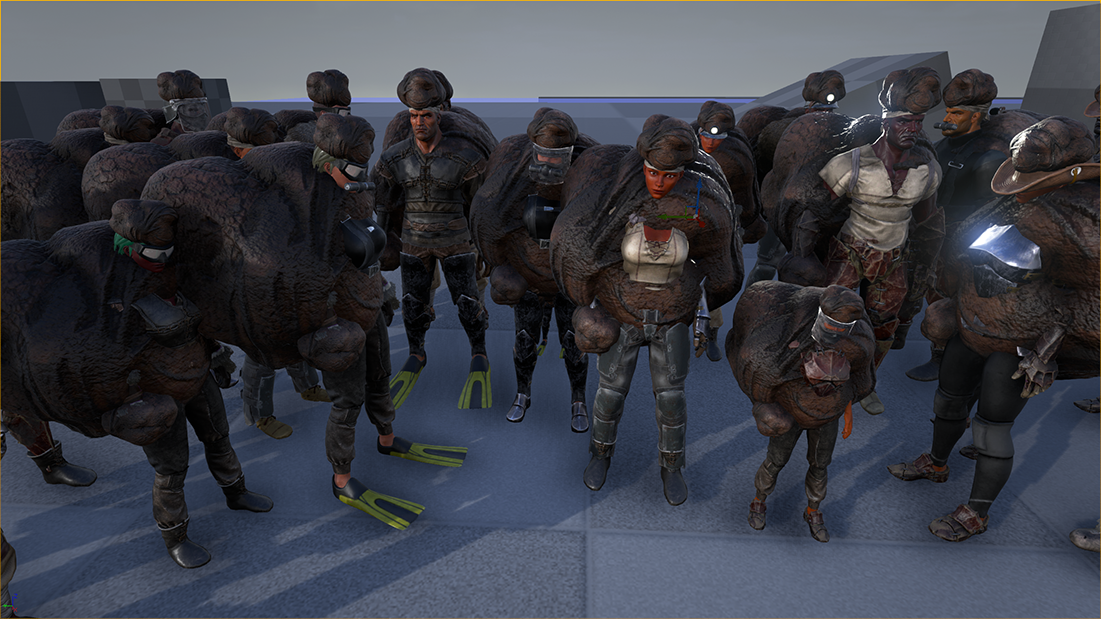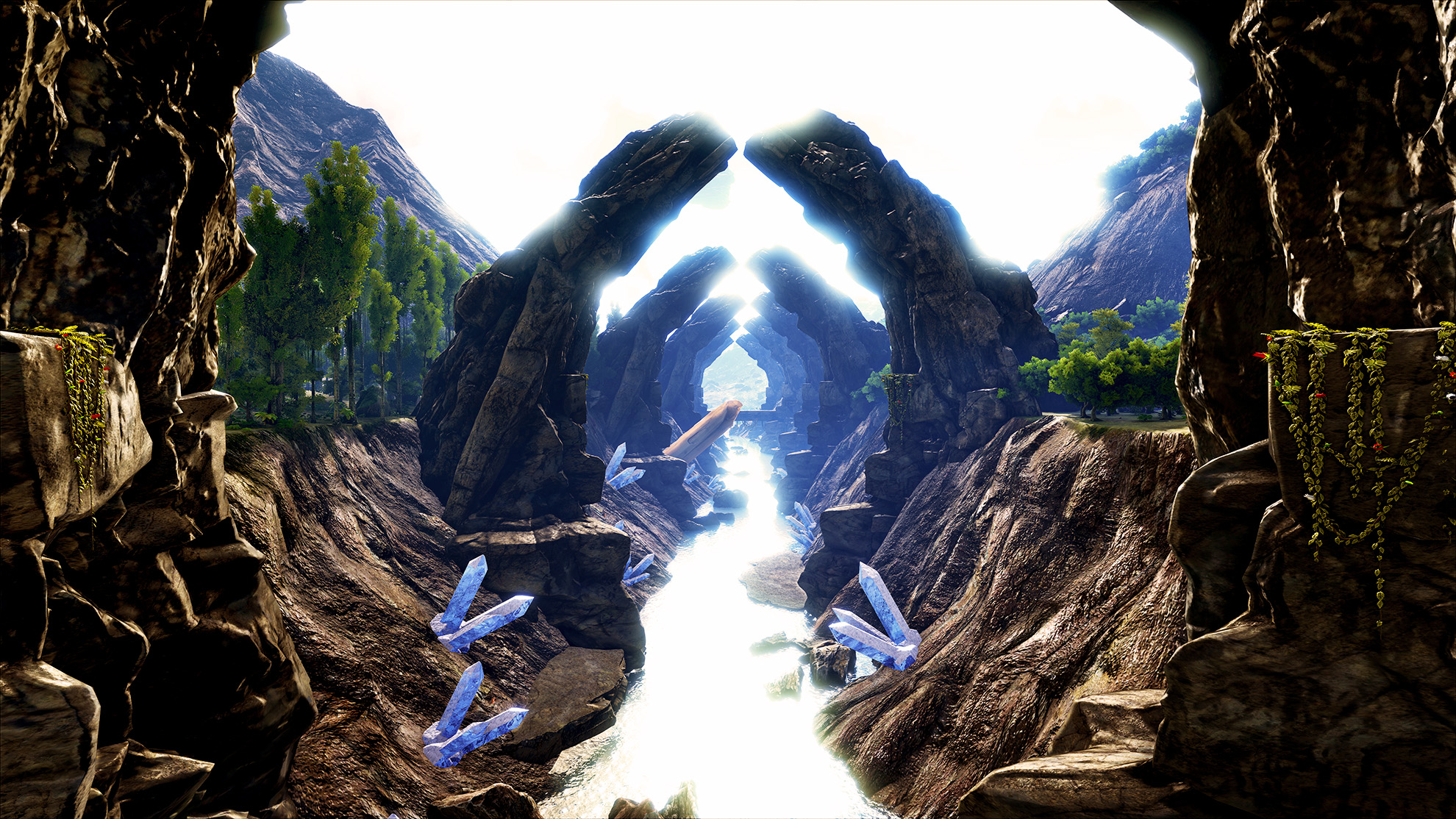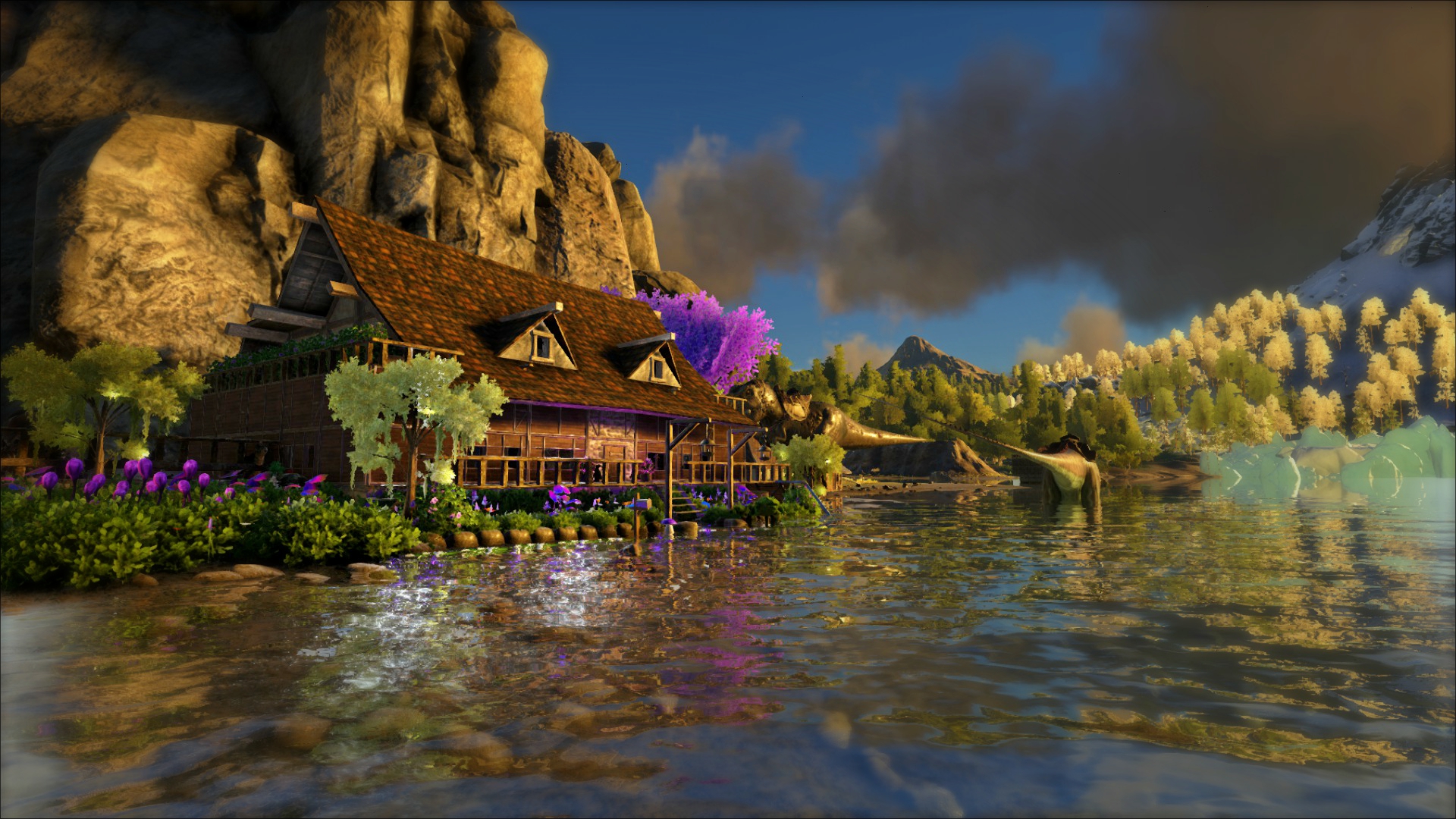Ark: Survival Evolved developer will pay modders $4,000 per month to complete their mods
15 modders each month will receive a stipend from Studio Wildcard, and completed mods may become official DLC.

Paid mods was one of 2015's most contentious issues, with Valve and Bethesda abruptly introducing, and just as quickly dissolving, a system in which modders could sell their Skyrim mods to players through the Steam Workshop. While this paid mods system was a failure for a number of reasons, Valve recently stated that it may reintroduce a paid mods system in the future, with Valve's Gabe Newell saying of modders, "...absolutely they need to be compensated."
Studio Wildcard, developer of Early Access dino-survival game Ark: Survival Evolved, is in agreement with Newell's sentiment about modders being paid, and are launching their own program that will allow Ark modders to earn some money. Not by allowing the sale of mods to players, but instead by paying modders directly on a monthly basis to work on and complete their mods.
In a call with Ark's lead designer, lead programmer, and co-creative director Jeremy Stieglitz last Friday, he explained how the new sponsored mod program will work. Each month, Studio Wildcard will select 15 modders and pay them each a stipend of $4,000 to work on their mods. Each month, the mods will be evaluated and it will be determined if those modders will continue to be paid for the next month, or if a mod will be dropped from the program and a new one added. There's also the potential to expand the number of modders being paid this monthly stipend.
"If we have to expand the program because the 15 mods are all doing so well that we don't want to cut any of them," Stieglitz said, "then we'll expand the program to more mods every month.
"The hope is that with this kind of stipend, these authors, who really are hobbyists and have day jobs so they can't really afford to spend as much time as they'd like on modding, that this will let them spend more time on modding, and ideally, hopefully, take some of these mods to completion."

Cedric Burkes of Studio Wildcard, whose own mod, Primitive Plus, was adopted into Ark as official DLC, will be deciding which mods make it into the new sponsored program, and determining each month if the mods will remain sponsored or be dropped and replaced by others. This could change down the line as a community feedback element may be added, which would have some influence on which mods become or remain sponsored.
"Once we get this kind of process going, we're almost certainly going to work out a community-driven aspect to is it as well," said Stieglitz, "where the community maybe even ultimately can vote, along with some discretion, maybe, on Cedric's part on who goes into that voting pool."
The biggest gaming news, reviews and hardware deals
Keep up to date with the most important stories and the best deals, as picked by the PC Gamer team.
Naturally, there's the potential for complications with this type of paid sponsorship. Modders often work in teams, large or small, official or casual, to develop their mods. These teams often collaborate online, sometimes completing a project without ever meeting in person. They also borrow models, skins, textures, code, and ideas from one another, and many mods rely on other mods not just for inspiration but to actually function. While this type of sharing is what makes modding communities great, it sometimes leads to conflicts, infighting, and accusations of theft between modders.
One recent example: two Ark modders clashed over Pokémon mods they were each developing, leading to one modder filing a DMCA notice against the other. And, one of the immediate issues with Valve's failed system was that a modder started selling a mod that used animations from another mod without permission. This mod had to be removed from the paid mod program as a result. I asked Studio Wildcard about these types of complications, and how they planned to resolve issues if or when they arise.
"We ultimately feel that at the end of the day the modders that enter this program are kind of, you might say they're making a commitment, I guess, to handle that, to some extent," said Stieglitz. "When they sign up for this we do have them represent that they have the rights to all the work. They don't have to be closed source, but they have at least open source rights to the work. So, if there's some dispute, technically it's up to the modder to deal with that, at that point."

Considering games, even after launch, continue to receive patches, updates, and new content, and those patches often break or disable mods, I wondered how Studio Wildcard would insure sponsored mods will continue to work even after a modder has completed their work and is no longer part of the sponsored program.
"We don't expect anything of them after that, if they are no longer in the program, or if they quit, they have no obligation to us, it really is no strings attached. We're not looking to run their lives or anything like that," said Stieglitz. "But we do have an insurance policy."
That policy: when entering the sponsored mod program, modders will have to upload their source assets to the Ark devs. So, if the mod needs to be updated in the future to be compatible with a new version of Ark, and the modder is unavailable to do the work (or is uninterested in doing so), the developers at Studio Wildcard will be able to make fixes themselves and push out a patch for the mod.
"We hope to not have to do that," Stieglitz said. "That's kind of a safety net."
The official announcement from Studio Wildcard about this new sponsored mod program will take place this week at GDC. That same day a small update to Ark will be applied that adds a menu to the game allowing players to access the list of the current month's sponsored mods and easily download them. We'll update our story once Studio Wildcard has made their announcement and the patch arrives.
"Really," said Stieglitz of the sponsored mod program, "this speaks more generally to something that I think is kind of lacking in the industry which is a midway point between hobbyist modders, who are just really dabbling, and professional game developers."
Below is a list of the initial 15 modders who have been selected for the sponsored mod program. You can visit the official sponsored mods site here.

NPC Bush People by Swords
Scorched Earth Decor, RP Decor, eco In Wonderland, and ecoTrees by eco
Ragnarok by Excited Kangaroo
Structures Plus, Platforms Anywhere, Platforms Plus by orionsun
Steampunk Mod by iSpeZz
Roraima by Jeff
Castles, Keeps, and Forts Architecture by enc | ExileAcid
Survival Plus by Tao
Ark Moon Survival by DavidBC
Shigo Islands by ExilogUploader
Madagascar Evolved by Hey my team rules!
Thieves Island and Skies of Nazca by Tkat5200
MRRadTools.Inc by MRRadioactiv
Ark Postal Service and Offline Raid Protection by jslay
Advanced Admin Command Menu by Woeful Macabre

Chris started playing PC games in the 1980s, started writing about them in the early 2000s, and (finally) started getting paid to write about them in the late 2000s. Following a few years as a regular freelancer, PC Gamer hired him in 2014, probably so he'd stop emailing them asking for more work. Chris has a love-hate relationship with survival games and an unhealthy fascination with the inner lives of NPCs. He's also a fan of offbeat simulation games, mods, and ignoring storylines in RPGs so he can make up his own.

